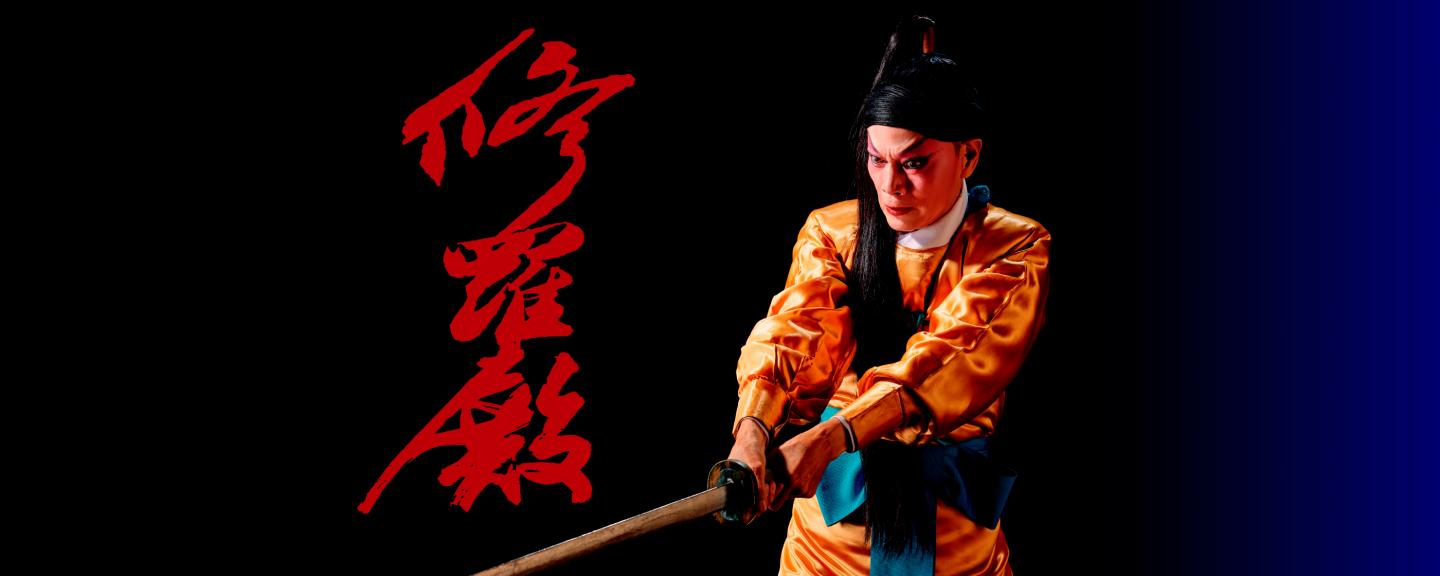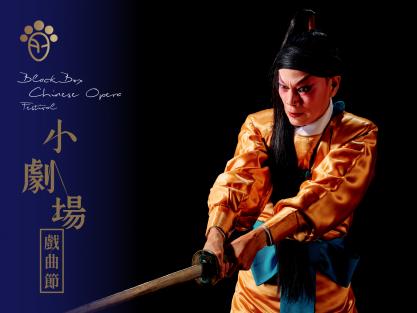Main
Description
此剧由戏曲中心委约,为粤剧名伶罗家英博士从艺半世纪以来首部独脚戏,他亲自创作及一人分饰多角,将黑泽明经典电影改编成小剧场粤剧独脚戏。
故事时空由日本改为明末,保留剧本骨干,由强盗与一对夫妇牵涉的命案开始,审讯过程中带出多个不同版本的「真相」。作品向电影的剪接和现代剧场的叙事手法取经,打破粤剧传统舞台和灯光,在台上不断转换时间与空间,与观众以不同角度思考道德、信任和人性。
罗家英博士近年致力将外文经典如《李尔王》、《马克白》改编成粤剧,尤其特别欣赏黑泽明的作品,《修罗殿》为他思考沉淀经年的成果,去年曾演出接近三小时的足本群戏,今次小剧场的演出撷取精华,透过多媒体的互动,结合现代剧场手法,向难度更高的独脚戏挑战。
冠名赞助:
制作:

艺术及制作团队:
编剧、导演、演员:罗家英
监制、导演、剧本整理:钟珍珍*
作曲、编曲:谭兆威
技术总监:胡伟聪*
舞台设计:陈兴泰
灯光设计:萧健邦
音响设计:冯璟康
录像设计:方晓丹
助理监制:李嘉隆*
制作经理:卢月芳*、陈嘉仪*
监制助理:庄淑雯*、丘颖晞*
乐师:
音乐领导:李迪伦
击乐领导:麦嘉威
乐师:司徒蔚雪、朱智明、何绮雯、何晋熙、吴泳霖、吴家宝、茹健朗、袁嘉怡、廖俊熙
*西九文化区职员
Additional info
Tabs
Commissioned by the Xiqu Centre, the experimental Cantonese opera The Asura Judgement is a stage retelling of the classic Japanese film Rashomon and stars Cantonese opera legend Law Kar-ying in a solo performance where he takes on multiple roles.
The original version of The Asura Judgement, written by Law himself, had a running time of over two hours. After its run, Law condensed it into a 90-minute experimental solo performance.
From its set design, to the lighting and sound systems, the production ulitises a combination of modern theatre technologies to craft a refreshing Cantonese opera experience for the audience. While Law is the sole actor on stage, he is able to interact with other characters via multimedia footage. This allows the events to be recounted through a string of contradicting perspectives, thus bringing out the core theme of the story—the ambiguous nature of truth and humanity.
The pared-down set and the employment of multimedia elements and montage technique add to the contemporary look and experimental ethos of the show as it explores new possibilities of Cantonese opera.
The continuous and sustainable development of Cantonese opera relies on bold experimentation and constant innovation. It was this belief that propelled Law to take on the monumental challenge of making and starring in The Asura Judgement. As a widely-revered industry veteran, he also hopes that his own journey of creating a multimedia Cantonese opera production will provide encouragement and wisdom for future innovators.
Cantonese Opera
Originating in the Guangzhou region of southern China, Cantonese opera is a genre of Chinese traditional theatre that is popular in Guangdong, Guangxi, Hong Kong and Macau, as well as the Chinese diaspora in Southeast Asia, America and Europe. The singing style adopts elements of bangzi and erhuang (traditional vocal and phrasing styles), and combines tunes of various origins, including set tunes from gaoqiang (high-pitched) and Kunqu genres and elements of folk narrative singing. Cantonese opera was inscribed onto the UNESCO Representative List of the Intangible Cultural Heritage of Humanity in 2009.


